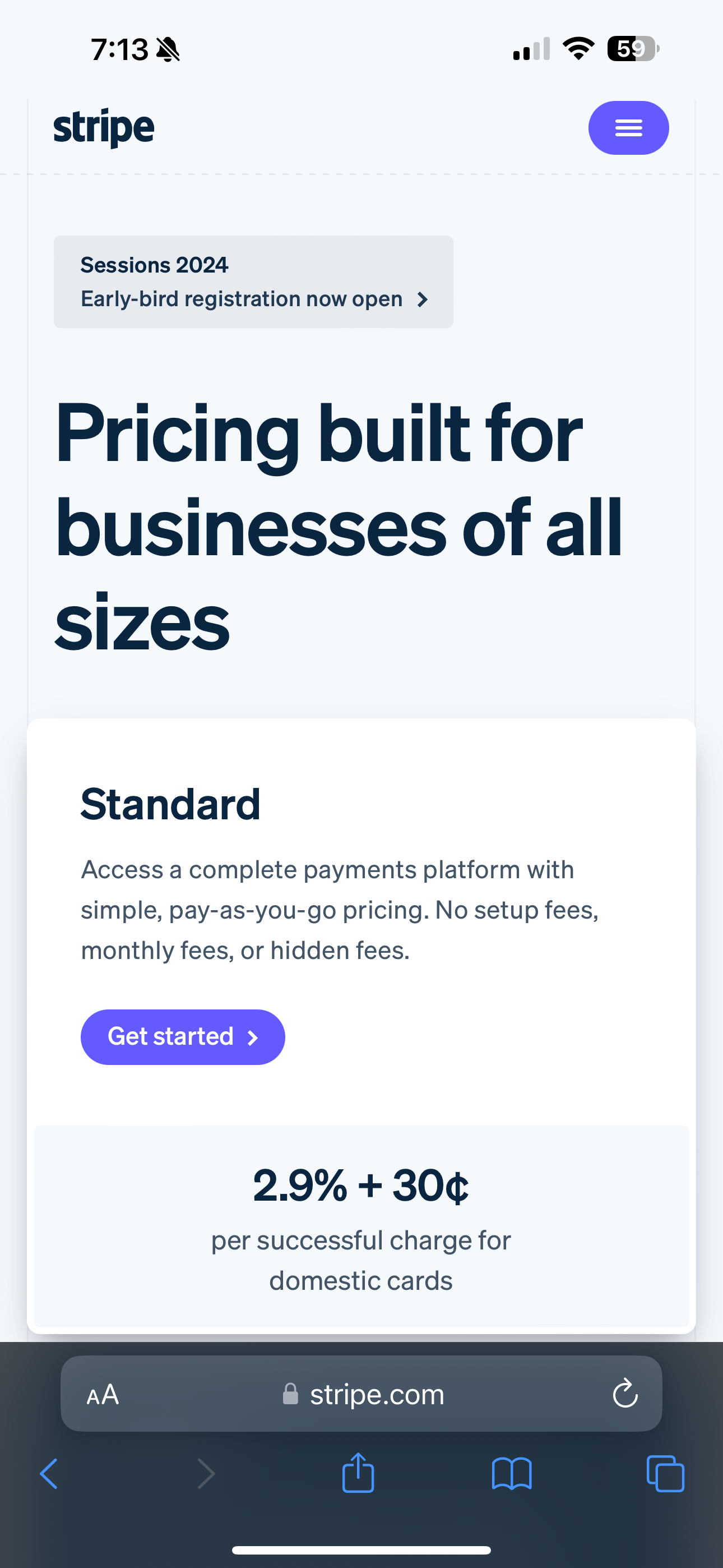deleted
If you are a developer, what right does Apple have to seeing your finances for all purchases made in the app that they sold on their store?
It’s a commission for sales that came from the app, meaning from Apple’s platform, where they have roughly one billion above-average income users with a reputation for buying apps and subscriptions.
It’s also worth keeping in mind that there are different ways of monetizing platforms, none of which are necessarily morally better or worse than the other. Microsoft’s IDE, Visual Studio, is $45 or $250 per user per month (so $4500 annually for a team of ten). Xcode, Apple’s IDE, is free. A business can offer its apps on the App Store, which also serves the files, for a grand total of $99/year.
XCode is also a steaming pile of shit. For example, it took them literal years to get syntax highlighting stable for Swift. You’d just be typing and poof, all the text would turn black.
Meanwhile my Visual Studio Professional at work will crash if I decide I want to delete a folder, the syntax highlighting will just stop working randomly and I’ll have to quit and re-open the solution.
Never used Xcode for any meaningful length of time, but VS Pro isn’t perfect either.
Yeah Visual Studio is terrible too, and slow as dirt. VSCode or any Jetbrains editor is where it’s at these days.
I love VSCode as a text editor. Shame work makes us use VS Pro as our IDE. We do get CoPilot integration though which is neat.
deleted by creator
Did I?
They’re all with their own faults is what I am trying to get across.
Maybe i need a nap. Sorry.
It’s cool. Enjoy your nap.
deleted
I won’t shed any tears for Amazon etc having to give Apple a huge chunk of cash
Amazon doesn’t have to give Apple a huge chunk of cash though. Apps don’t pay anything to Apple for real-world stuff being sold. Amazon pays nothing for the tens of billions of dollars purchased every year from iPhones. The only thing they pay Apple for is if someone uses the Prime Video app to buy or rent something or subscribe to Prime Video, but who does not already have an Amazon account (with saved card) that they’re signed into. We’re probably talking a number measured in the thousands of dollars. Uber, for example, pays Apple nothing other than their annual developer account fee (or fees, assuming they have multiple accounts).
this sounds like a way to frustrate small developers who don’t have a whole team to devote to their finances.
Nobody is going to actually use this program so there’s no real world extra accounting cost. Previously Apple charged 30% for a combined payment handling and commission. A court determined they had to let developers handle their own payments so Apple complied and said the commission is 27%. It’s invariably cheaper to just stick with Apple’s 30%.
Everyone always wants more money. Developers would love to pay less; Apple would love to make more. The 30% max fee (in practice less for many developers) has been pretty successful for everyone involved. I think people can quibble over the “right” number, but I don’t think it’s wrong that there’s a sales commission for access to a profitable platform.
Important to note that the 30% cut is also only on developers that bring in >$1M in revenue from the App Store and in app purchases. Which is less than 1% of developers.
For those under $1M it’s only 15%, which is on par or cheaper than what developing your own payment processing or to use another third party processor.
15% is not cheaper than using your own payment processor, don’t be silly. Stripe costs me around 3% and can be set up in five minutes.
Stripe standard is 3% plus 30 cents per transaction.

If your app costs $1 or you IAP costs $1, stripe would cost you 33 cents for that transaction. Or 33%.
To get down below 15% total you would need to have your average transaction would need to be $2.50 or higher.
The average app price on the App Store is 88 cents. https://www.statista.com/statistics/267346/average-apple-app-store-price-app/
And the median in app purchase is about $1.30. https://techcrunch.com/2022/09/13/apples-in-app-purchase-prices-jumped-40-year-over-year-likely-tied-to-privacy-changes/
The vast majority of developers would pay more to use something like stripe.
The average app price on the App Store is 88 cents. https://www.statista.com/statistics/267346/average-apple-app-store-price-app/
Is that using free apps to bring the average down?
How many purchases were actually made at such rates? Apple has a credit system last I checked which means the fee could be taken for a higher amount, bringing that commission down hugely.
And the median in app purchase is about $1.30. https://techcrunch.com/2022/09/13/apples-in-app-purchase-prices-jumped-40-year-over-year-likely-tied-to-privacy-changes/
I can’t see that number mentioned.
deleted
No, Apple only charges commission on purchases within the app using apples system. You can implement your own and tell people to make a purchase they need to go to your website.
That’s what Netflix has always done as one example.
deleted
It’s a commission for sales that came from the app
Now where are Apple’s detailed sales reports, poving that this isn’t paid with the device?
Businesses don’t make themselves cheaper for consumers even if they get a chance to cut their overhead. I just don’t see businesses ever do that. Profits “rise” and they circle-jerk about how great they’re doing.
I’m more interested in getting access to FOSS, indie apps, and apps that Apple is too afraid to be associated with, such as emulators and apps that feature adult content.
The whole point of this exercise was that a bigger cut of the app revenue goes to the developers though.
You know, since the phone manufacturer and payment provider actually doesn’t do any of the development work on the app…
No, but they do gate keep what can/can’t be installed on their phone quite aggressively.
That’s why there isn’t a single torrent client for iOS, for example.
This article seems like Apple had to sign off on it before it was published. Having multiple stores from which to choose will certainly lead to lower prices. The best example of this is gaming. Closed systems of digital purchases like Xbox or Nintendo Switch stores almost always have higher prices than the exact same game on PC. Of course on PC I can buy from the ubiquitous Steam, the Microsoft store, Epic, GOG, UBI, EA, itch.io and others. If PC were like an iPhone I would only be able to buy from Microsoft and MS could demand a cut of every game sold outside of their walled garden.
The fact this writer claims developers would be nothing without Apple is laughable. If Apple closed up shop tomorrow we’d still want and use apps. Apple is not the reason we use apps, they are only a platform that can run the apps we already use.
They mean the handset price will go up, since Apple will no longer be able to suck as much app store money from you
Though I don’t expect many people to take advantage of their new freedom - look at the number of Android users who have ever side loaded apps, or used a store which didn’t come with their phone
UBI
Y’all have Universal Basic Income on PC?
This article is totally not sponsored by Apple 🙄🙄🙄
So many BS points
deleted by creator
deleted by creator
The literal creation of the problem and making of a solution. I bought my PC, I install applications on my PC, I do not pay MSI, AMD, intel, nvidia, corsair, Linux, ms windows money after the fact. Same goes for android when side loading, its all a silly excuse to cover they’re greed
deleted
What a bootlicker.
deleted by creator
Don’t worry, I didn’t.
deleted by creator
There is no free lunch. Even if you aren’t paying for apps, you are still paying for them. Even FOSS apps, your share is just being paid for by the kindness of the developers or other community members who donate to fund development.
deleted by creator
Do you generally ask everyone you know about their app buying choices? How many people do you know? How up to date is this data? Does it include in-app purchases?
deleted by creator
I apologize, was attempting to be funny. The best thing about Lemmy is the community, so please keep joining in.







